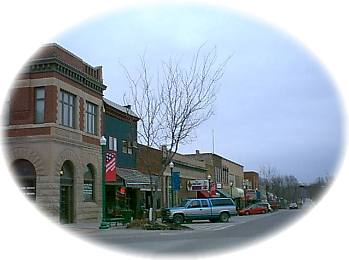
In late August 1935 the Saunders County Commissioners voted to file for funding from the Federal Emergency Relief Administration of Public Works for a new bridge and approaches at this location. The Lincoln Drainage District planned to alter the course of Salt Creek, thus necessitating a new bridge at Ashland to carry heavily traveled U.S. Highway 6 over the new channel bed. Constructed in1936, this bridge used Warrens with polygonal top chords for its long-span pony trusses. Although adopted as a standard design in other states, the polygonal Warren truss was never used extensively in Nebraska. The Ashland Bridge is thus technologically noteworthy as one of two remaining examples in the state of this formative engineering exercise, and is listed on the National Register of Historic Places.
